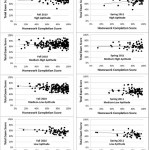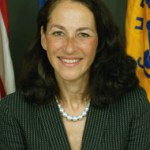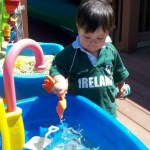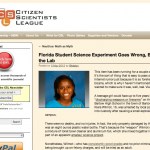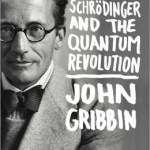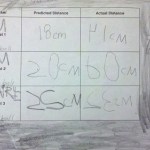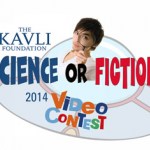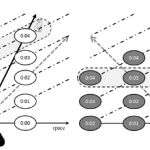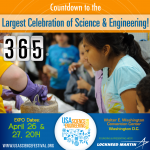Science
Ok, this is a little different, but it's annoying, so I'm going to talk about it.
Let me begin by saying I love the Union of Concerned Scientists. They've been wonderful advocates on climate change for decades; they are media savvy, they train scientists to be media savvy, and they push the media and policy makers alike to understand the scientific consensus. When it comes to climate change, I trust them over just about any other source.
Which is why it's so disappointing that they are so wrong on genetically modified organisms.
Several years ago, UCS decided to branch out…
One of the perennial problems of teaching intro physics is getting students to do their homework, so I was very interested to see Andy Rundquist on Twitter post a link to a paper on the arxiv titled "How different incentives affect homework completion in introductory physics courses." When I shared this with the rest of my department, though, I got a link to an even more interesting paper from the same group, on the effect that doing homework has on student performance. This has an extremely surprising conclusion: for the weakest students in introductory physics, doing more homework actually…
The future of Astrobiology research within NASA is being set now.
Next week there are further opportunities for community input.
The online discussion for Solar System Exploration wraps up today!
If you are an active researcher, a student planning on getting into astrobiology, or an interested member of the community, this is your chance to provide input on the direction of research.
This is your future.
Be there, or we will choose for you.
The NASA Astrobiology Roadmap exercise is under way, and will continue over the next two weeks.
NASA Astrobiology
The next two topics will kick off…
The book-in-progress (which is coming along, albeit slowly, thanks for asking) is built around making analogies between scientific discoveries and ordinary activities. This necessarily means telling a lot of historical stories, which is both good and bad. The bad part is that actual history is way messier than the streamlined version you get to use if you're primarily trying to explain the science, and I feel some obligation to do this right as much as possible, thus making work for myself. The good part is I'm reading a lot of narrative history of science stuff, which is kind of fun. In…
What are Origami Nanosat Telescopes? How about Kinetic Inductance Detectors?
More importantly, what should we do with them?
NASA's Astrophysics is doing a Roadmap exercise, with the stated intent to look at science goals, technology and capabilities up to 30 years out!
White papers were solicited a few weeks ago, and about 100 were received and are archived online, about 3/4 on science and 1/4 on technology.
There was originally supposed to be a workshop for presentation of selected white papers, but in the world of sequestration that was not feasible, so instead there was a two day online…
It is critically important that the community participate in the current ongoing discussion for the NASA roadmaps. Particularly if you are an early career researcher. This is your opportunity to make the case for what you think is interesting and important.
NASA Astrobiology
NASA is going through a series of Roadmap exercises by the different directorates, trying to set medium and long term policy for science goals, technology development and capabilities.
The NASA Astrobiology Program is doing a rolling series of Roadmap input sessions for four themes for Astrobiology.
Each theme kicks…
It's going to be a good season, I can tell already. It's finals week, so I'll still have an abrupt pile of grading to do on Thursday, but otherwise, my teaching obligations are done for the semester. Now I'm trapped, trapped I tell you, in Morris for almost (I do have two quick trips to Europe planned) the entire summer with a collection of administrative responsibilities, but the good part of that is that I have ambitious plans for what I'll be doing in the lab. I'm also going to be living the good life.
So this morning I slept in to 7:00. I know, it's slothful of me, but I have the freedom…
By USA Science & Engineering Festival Founder Larry Bock
The answers to some of the biggest challenges facing us this century lie waiting to be discovered in the laboratories and institutions of science, technology, engineering and mathematics. But we must remember, scientists do not operate in a vacuum in such endeavors.
Increasingly, policy makers -- often working in the highest seats of government -- are playing an important role in the research discovery scenario, including deciding which projects to fund, and assuring that scientific discoveries and their resulting impacts…
My parents have a DVD of the Bacon Brothers singing "The Wheels on the Bus" over an animated scene, which The Pip loves and insists on watching over, and over, and over, and over... As the parent sitting through this on Sunday morning, I got a little punchy over on Twitter, and invented some quantum-physics-themed verses (if you don't know the tune, 1) count yourself lucky, and 2) here's a clip from the video on YouTube). Here are the results:
The electrons on the bus are fermions,
fermions,
fermions.
The electrons on the bus are fermions, in antisymmetric states...
Operators on the bus are…
Stem cells are magical, mystical things that can't be explained.
At least, if you listen to what docs and "practitioners" who run stem cell clinics in various parts of the world, usually where regulation is lax and money from First World clientele is much sought after, that's what you could easily come to believe. Unfortunately, it's not just Third World countries in which "stem cell clinics" have proliferated. For instance, they are not nearly uncommon enough in Europe. The example that is most troubling right now is Italy, and the reason is that there is currently a law being considered…
They were amateurish videos, often black and white, sometimes just a disembodied hand writing simple equations on a blackboard as a quirky voice from off screen gave well practiced short lectures highlighting the essential learning elements.
The pedagogy was revolutionary, university level material freely accessible by vast, unimaginable numbers - set to revolutionize education.
Yes, The Open University was a revelation when I discovered their late night television broadcasts as a callow teen, bored with O-level chemistry. Here was real learning, advanced material presented much better than…
Just read a series of interesting articles on inquiry based science:
Inquiry Science rocks: Or does it - David Klahr tries to test the efficacy of discovery learning (APS News 12. 2012).
Direct Instruction rocks: Or does it - Richard Hake takes issue with Klahr's inferences.
To be contrasted with:
The Efficacy of Student-Centered Instruction in Supporting Science Learning - Granger et al Science 338 105 (2012) [sub]
The amount of data on the efficacy of the different teaching methods is still pathetically small.
I am inclined to believe that student center instruction or inquiry science is…
“Talent hits the target no one else can hit; genius hits the target no one else can see.” -Arthur Schopenhauer
You've probably heard the story, by now, of Kiera Wilmot, the 16-year-old girl who performed a mildly dangerous chemistry experiment on school grounds, mixing together household cleaner and aluminum inside a sealed container. You can get the full story (excellently covered) via DNLee, but to give you the 15-second version, she was arrested, expelled, and is presently being charged with a felony that carries up to 5 years in prison. The school board is not backing down, the attorney…
Knock. Knock.
Hello?
Is this thing still working?
Anyone there?
Ok, it is end of semester and I am out of excuses.
Time to clear out some backlog of stuff to read.
Am I Wrong? - Bruce Alberts, Editor in Chief of Science, worries about the future.
He is rarely wrong.
Time Crystals - interesting article from the increasingly pro-active Simons Foundation on Frank Wilczek's provocative idea on multi-stable ground state configurations that may cycle through different but energetically equivalent configurations. Berkeley group is trying an experimental test of the concept. Won't be definitive,…
Erwin Schrödinger is one of the more colorful figures in physics history. He's best known for Emmy's favorite thought experiment, of course, which attempts to demonstrate the absurdity of quantum physics through locking a cat in a box. This overshadows the Schrödinger Equation, the central equation of non-relativistic quantum mechanics, which won him a Nobel Prize in 1933. He's also renowned within physics for his unorthodox personal life, which involved innumerable extramarital affairs, and ultimately cost him a job at Oxford.
The definitive academic biography of Schrödinger has been out for…
Here we go again.
One of the greatest threats to biomedical research, in the U.S. at least, is the truly crappy research funding environment, a situation that hasn't been this bad for at least 20 years. Labs are closing; investigators are giving up; and fewer of our young best and brightest are interested in a career in biomedical research. However, there are other threats. Although they're not as big a threat in the US as they are in Europe, animal rights activists have nonetheless managed to intimidate scientists here, harass idealistic young students interested in a career in science in a…
SteelyKid takes a bunch of enrichment classes at her day care, none of which are explicitly science. I was, however, thrilled to discover that they were doing actual science in her computer class though. The "Featured Image" at the top of this post (sorry, RSS readers, you'll need to click through) is a cell-phone picture of the worksheet she brought home the other day. Apparently, they made a computer-controlled Lego robot to kick a ball, and measured its performance, as recorded in the table in the picture (keep in mind, she's 4.75 years old, so some letters and numbers occasionally undergo…
By USA Science & Engineering Festival Founder Larry Bock
In what started out as a hopeful trickle more than four years ago has seemingly evolved into a full-blown trend: Suddenly it's cool and hip to be a scientist in Hollywood. Ranging from such blockbuster films as The Amazing Spiderman, Battleship, The Avengers, and Iron Man 2 to TV hits including House, Fringe, Criminal Minds, and Breaking Bad, an increasing number of Hollywood productions are using real-life scientists as advisors to not only boost the technical accuracy of scripts and…
Last year, Alan Alda posed a challenge to science communicators, to explain a flame in terms that an 11-year old could understand. this drew a lot of responses, and some very good winners. This year's contest, though still called the "Flame Challenge," asked for an answer to the question "What Is Time?"
This is a little closer to my corner of science, so I considered entering, but as previously noted, I'm crushingly busy at present. And either scripting/ shooting/ editing a video, or doing the necessary work to hack a written response down to the prescribed 300 characters was more time than I…
Save the date: the USA Science & Engineering Festival Expo is just one year away! We are so excited to bring you the largest celebration of science & engineering for the 3rd time! Leading up to the Expo we will have affiliate events, the return of the Nifty Fifty (x3), contests, and school programs! The Festival week will kick off with the U.S. News STEM Solutions Conference, the launch of X-STEM Extreme STEM Symposium (Thursday, April 24) and Sneak Peek Friday (April 25)! The free and open to the public finale Expo will be the weekend of April 26-…
